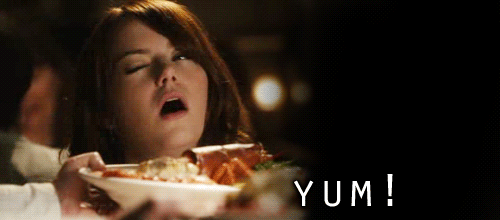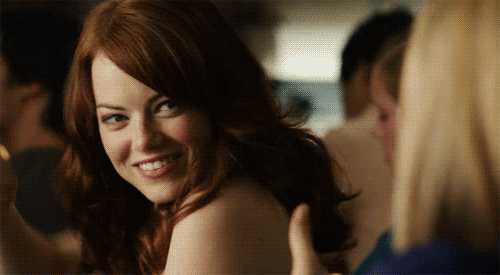
Much has been made of the fact that Friends With Benefits has the same concept as No Strings Attached, which came out much earlier in the year, and that each of these movies featured a key member of the Black Swan cast.
This is irrelevant: Justin Timberlake is objectively better than Ashton Kutcher. That’s as far as this needs to go.
Friends With Benefits is another movie about people disillusioned with love as it is represented in romantic comedies. By being incredibly self aware it tries to suggest that it’s above romantic comedies, but really it’s fooling no one: Friends With Benefits is a romantic comedy, albeit one that only has a couple of moments to be ashamed of.
Jamie (Mila Kunis) headhunts Dylan (Justin Timberlake) for a job at GQ. They become friends. Benefits ensue. But perhaps … Perhaps they see more than that in each other? Don’t be ridiculous!
Before Kunis and Timberlake get naked together they develop a rapport that seems genuine enough to sustain a fairly obvious movie. After they’ve established their nudity, their relationship is portrayed as an extremely healthy marriage (without, of course, the ceremony): what these people never seemed to realise is that while friendship can be had without romance impinging, love is greatly enhanced by the presence of friendship.
Despite the trappings of no strings attached sex, it's clear from the scripting and the chemistry between the two of them that there is a real relationship playing out on screen; by removing the artificial construct of "dating†forced onto society, these people are allowed to be real with each other. By pretending that they're not in a relationship, they manage to forge one of the more natural relationships in recent movie history. It's never really been clear to me if movies and popular culture reflect or shape the nature of modern dating mores, but more people should try to be friendly with each other rather than competing for their sexual intercourse. I'm crazy with theories like that.
The inevitable third act drama that tears at the true love that Dylan and Jamie obviously have for one another is laboured and drags too long; these characters had been level headed and vocal in their attempts to understand one another to that point, and not all conflict has to come at the expense of undermining surprisingly well-constructed characters. Timberlake gets to perform his John Cusack boombox scene at Grand Central Station in an attempt to undo all of the damage the characters had done to each other in the preceding twenty minutes, but the grand gesture is the film's most obvious and explicitly stated concession to the romantic comedy form and is consequently its weakest point.
If you think that paragraph spoiled this film in any way, then you probably are not very familiar with the genre. For that I apologise, but you're also not missing that much in the scheme of things.
As Timberlake's Alzheimer's afflicted father, Richard Jenkins brings tenderness and dignity to a role that could have too easily been played for mawkish sentimentality. Timberlake plays off him very well and their scenes play on exactly the right level, although they do tend towards the tearjerking for overly sensitive viewers.
Patricia Clarkson, as Kunis' free spirited mother, could not be more different. The character is undercooked and Clarkson wrings all that she can out of the little screen time that she is allowed, but the problematic nature of the mother-daughter relationship is never more than superficial. Timberlake is definitely more adequately depicted as "emotionally unavailableâ€, while Kunis just comes across as a normal woman with a slightly annoying and frequently absent mother.
Friends With Benefits is not without its obvious missteps: an over reliance on kitschy internet age embarrassments like flash mobs threaten to undo it very early, and Woody Harrelson's super gay sports editor is both gratuitous and an ultimately meaningless use of a relatively big name. The use of Semisonic's amazing "Closing Time†is welcome, but no movie released in 2011 should be allowed to feature Steppenwolf's "Magic Carpet Ride†over the end credits. This is as offensive as it is unwelcome because, in addition to being 43 years old, that song is repetitive and horrible.
Given that one of the talking points Justin Timberlake raises in regards to romantic comedies is their horrible scoring and soundtracks, I don’t know if Gluck and company were being ironic or simply ignorant when they furbished their movie with exactly the same music as their much derided nested rom com, I Love You, I Love New York Too, which surprisingly features Jason Segel and Rashida Jones credited as themselves, a gutsy move in that they’re playing deliberately horrible actors in a woeful romantic comedy. The mysteries pile up.
After last year's surprisingly critically popular but ultimately lame brained and uninformed Easy A, a film which is most noteworthy as a treasure trove of Emma Stone gifs …

… Will Gluck has finally struck on a good enough idea that isn't too cutesy or gimmicky. With four writers it's something of a production line comedy, but for the most part it has the good grace not to feel like it. Product placement is rife and it's strange to think that they made a movie based on the premise of a man moving from an internet job to a terrestrial magazine (with a circulation of 800,000 compared to the site's 6 million hits), but it's okay, because apparently internet traffic means nothing! The printed word is the future! There's a strange joke based on the iPad's landscape and portrait modes, and Timberlake uses his phone and makes a "there's an app for that†joke despite the fact that he's blatantly using a Sony Ericsson Xperia. Real people would be far more brand conscious than that – especially considering how proprietary everyone is these days about their phones, Apple people in particular.
Then, this is a movie about rich white people who commute from their luxury New York apartments and fabulously paid jobs to their beach front ancestral homes in Los Angeles, so I assume that on a certain level we're not actually supposed to identify with it at all.
It never particularly matters that Friends With Benefits utterly fails in its attempts to subvert the romantic comedy genre as it promises; it effectively tears apart Katherine Heigl and that's just about enough for me. Both Jamie and Dylan as characters are a sufficient departure from the horrible archetypes that Heigl and her hapless partners are always forced to embody. Friends With Benefits is simultaneously thoroughly predictable but not without its pleasant surprises. In these dark times, remember this mantra: you could do far worse.


How many Katherine Heigl movies have you seen? Just curious.
I think I’ve only seen Knocked Up, but I’ve seen countless Heigl trailers.